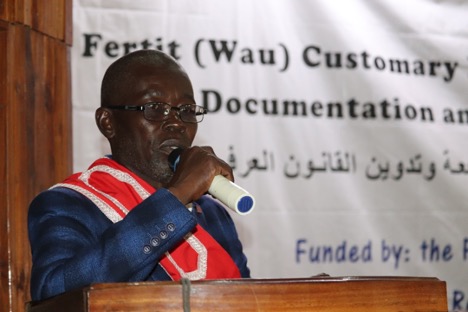
South Sudan to receive over 500,000 returnees, refugees by December

The National Minister of Humanitarian Affairs and Disaster Management, Albino Akol Atak said on Wednesday states bordering Sudan are overwhelmed by the continued daily influx of returnees and refugees.
“The northern states that are receiving a number of returnees and refugees are really suffering from two issues, the number of people arriving is putting pressure on the population, they have been depending on supplies from Sudan which are no longer there and that is another economic pressure on them,” Akol told journalists after closed door meeting with humanitarian partners in Juba.
He said supplies in the local markets will soon get depleted, exacerbating the already dire humanitarian crisis created since outbreak of conflict in neighboring Sudan on April 15.
“We are seeing the conflict in Sudan is not stopping soon, as government we are reviewing plan on how to respond to this bigger number, we are anticipating that 500,000 and more people will arrive upto the end of the year,” Akol said.
The country is already hosting more than 150,000 returnees and refugees of which 90 percent are South Sudanese who fled fighting in Sudan.
Akol said the humanitarian situation is handicapped by funding shortfall as the 5.3 million U.S dollar budget approved earlier by cabinet for three months period is not enough.
“The government and partners put in money but we still have a gap in funding because of the big number that are arriving every day and they are congesting some entry points in Renk, Paloch and Malakal,” he said.
The International Organization for Migration (IOM) recently appealed for 190.5 million dollars to provide essential core services such as health, water, sanitation and hygiene response and the provision of mental health and psychosocial support to returnees and refugees. The budget includes also transportation of those displaced by the Sudan conflict to resettlement areas.
Peter Van der Auweraert, the Acting Humanitarian coordinator in South Sudan, said transportation of returnees and refugees to points of destination is a major challenge.
“Transportation is a challenge in South Sudan you can move people by boat or by plane. Planes are very expensive, the donors have been very generous the government has been allocating but we will struggle in the next couple of months to ensure we have sufficient funding to move people by plane,” Auweraert said.
“What we are seeing is that, when people arrive in South Sudan today, they are more vulnerable than they used to be. They are more likely to be undernourished, they are more likely to be sick and they are more likely to need more assistance than before that means we will have to provide consumably more humanitarian assistance both at the point of arrival but also at the point of destination,” he added.



































